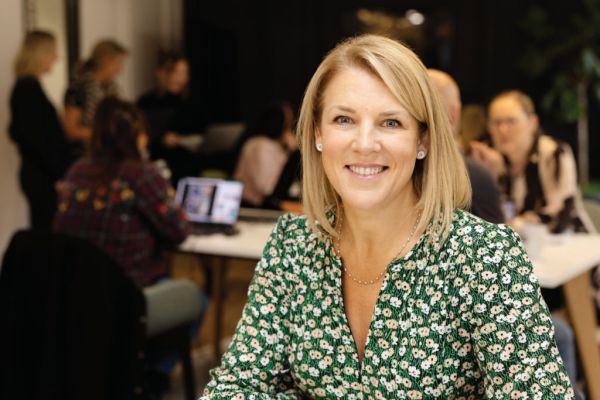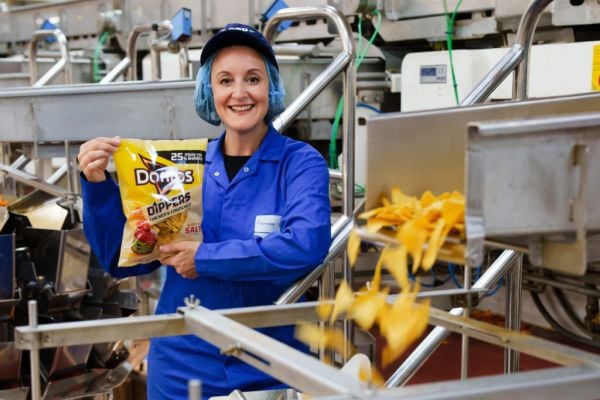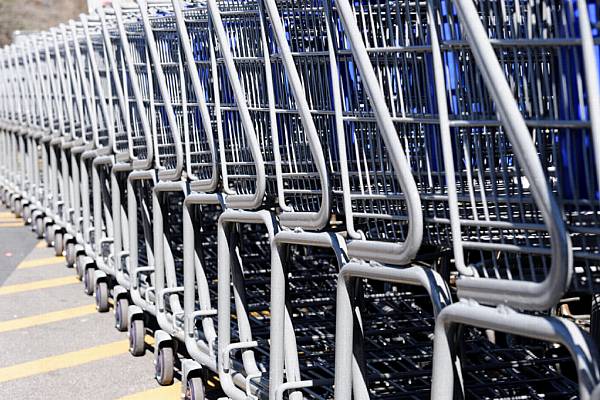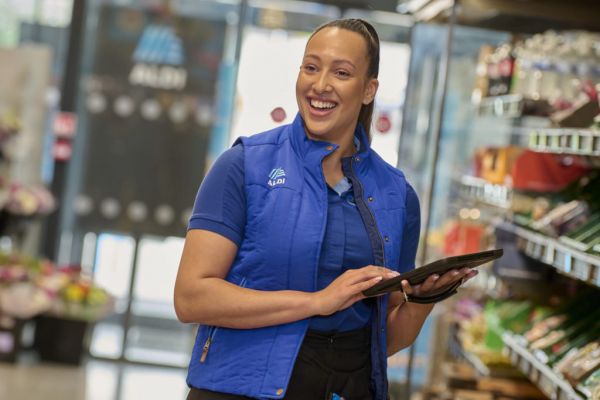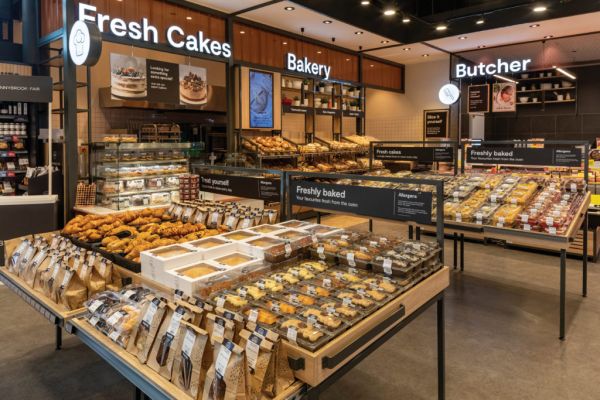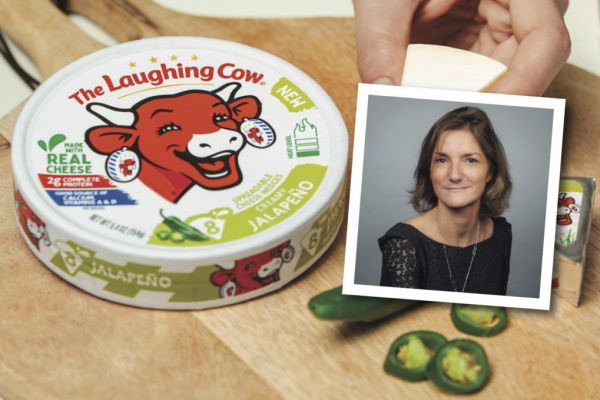Stephen Wynne-Jones travelled to the UK to meet Sarah Bradbury, IGD’s chief executive, as she completes her first half-year in the role. This article first appeared in ESM's March/April 2024 edition.
If you spend a quarter of a century in the retail industry, you’re going to learn a thing or two about how supermarkets operate, and for Sarah Bradbury, the recently appointed chief executive of IGD, her two and a half decades in senior roles at Aldi (first) and then Tesco are likely to stand her in good stead.
“I was really enjoying my role,” Bradbury says of her most recent position, as Tesco’s group quality director. “I had no plans to leave, but then the opportunity here came up, and it played to my desire to do things more broadly, which you can’t do when you’re sat in one retailer, so I thought I would find out more.”
A New IGD
Bradbury joined IGD in July 2023, replacing Susan Barratt, who, in her four-year tenure, oversaw a restructuring of the group’s brand identity, built around two core pillars – Commercial Insight and Social Impact – not to mention an overhaul of its headquarters in Radlett, north of London, which certainly appears more spacious than the last time that ESM paid a visit.
Having held a variety of responsibilities at Tesco, including overseeing quality, sustainability and environmental initiatives, as well as regulatory compliance, Bradbury has plenty of experience in making things happen, and her involvement with IGD’s Technical Leaders’ Forum, which she co-chaired from 2018 to 2020, made her aware of the parallels between what she was doing and the broader aspirations of the industry.
“IGD is the only organisation that’s totally end to end,” she says. “Working with other trade associations and organisations, as I have, you’re only talking to retailers or to farmers or manufacturers, etc., when, really, we need the whole supply chain to work together.
“I think that very few people know what IGD does across the board – I didn’t until I joined. I call it the best-kept secret in the industry – people don’t know the scale of what we do – and we probably haven’t been talking about it enough.”
Collaborative Thinking
Since commencing her role, Bradbury has set to work identifying areas in which IGD could support the industry better, and she believes that the organisation’s long-standing focus on collaboration and leveraging expertise makes it well positioned to address the challenges of the marketplace.
“Resilience is the buzzword – everyone’s talking about it,” she says, “but what does it mean, and how do we start preparing for the next phase?
“We’ve got short-term issues, we’ve got more geopolitical issues than we’ve ever had before, but what does that actually mean? How do we start mapping some of that out collaboratively? Working with the Technical Leaders’ Forum, we’ve identified 250 issues that people can see today, and that doesn’t include the things that they can’t see. So, it’s really about starting to get people sharing more, so that we can start finding wholesale solutions.”
That shouldn’t involve duplication, she adds, noting that one of her focal points has been on where IGD is placed, relative to other organisations, when it comes to addressing certain macro-topics.
“Look at the British Retail Consortium – they have done brilliant work on apprenticeships. Is there any point in us doing the same thing, or should we be collaborating with and supporting them? WRAP is another example, with regard to packaging. As our industry's thinking on this topic comes together, we have realised where WRAP is best placed to play and take that work forward. They’ll be better at it, so let’s leave them to do that and collaborate with them when needed.”
Supportive Role
In areas such as people and sustainability, however, Bradbury believes that there is an “extra opportunity” for organisations such as IGD to get involved.
“We can be quite focused on the role that we can play – a supportive, end-to-end role,” she says. “On the people side, working with the Food and Drink Sector Council, we are amplifying the work that we’re already doing, so that by this summer we should have an industry attractiveness programme. We’ve always focused on how to get school leavers into the industry, but we’re trying to amplify the programmes as part of that.
“We’re also in the early stages of working out a bigger role we can play as an ‘uber convenor’ on sustainability.”
As Bradbury noted in a recent interview, there is an opportunity for the IGD to have a “louder voice” in the industry, but this doesn’t necessarily entail taking a specific stance. During our conversation, she won’t be drawn on the positives and negatives of the current Conservative government, nor the likely outcome of the forthcoming UK general election.
Rather, IGD will continue to seek to provide informed opinions and evidenced-based insights to support decision-making and policy formulation – “[an] essential partner for the food and consumer goods industry,” as she puts it.
“Fundamentally, the problems of the industry now are going to be the problems of the industry in the future, and the things that need fixing are going to be the same things,” she says, “so I think if we focus less on worrying about the people at the top and focus on those that actually need the support, then we’re best placed to make the changes we need in the industry.”
Eco-Labelling
One topic that has been at the top of Bradbury’s inbox for some time is eco-labelling, namely the development of a standardised approach to measuring a product’s eco impact and working out the most effective way to communicate that to customers. It’s a task that she started while at Tesco, and following a number of years, several hundred conversations, and collaborations with various steering groups, IGD submitted its recommendations on eco-labelling to the Department for Environment, Food and Rural Affairs (Defra) late last year.
The response was mixed. Environmental groups such as the Sustainable Food Trust and Compassion in World Farming suggested that the labelling proposal didn’t go far enough, while the National Farmers’ Union cautioned against oversimplifying complex supply chain procedures into a single score or label. “Oversimplification could unintentionally mislead consumers,” as the NFU’s Helen Hunt put it.
“When I was at Tesco, myself and a number of other retail colleagues had the same thought: there’s lots of eco-labelling popping up all over the place,” Bradbury says of the scheme’s origins. “Could we come up with a unified solution that would be right for the industry?”
With that in mind, IGD’s ambition was twofold: firstly, to develop an aligned way of measuring, which would help manufacturers in how they develop their products; and, secondly, to determine how such a label would be presented to customers.
“Would it be on pack, would it be a QR code, would it be online? I know the IGD did their best to work with the different steering groups, bringing people in as part of the collaboration. I think there were 350 different conversations had.
“Of course, not everybody is going to be happy – and is it the final solution? Probably not, but it’s really important to be working alongside Defra, to support them, to hear the conversations that are happening, and to work in collaboration.”
Commercial Insights
Bradbury is also keen to grow IGD’s Commercial Insights arm, focusing on forward-looking analyses and providing more timely insights, to support the industry. It recently relaunched its website and expanded its insights team with a view to building on its already knowledgeable presence. I remember being at an event in late 2022, where IGD economist James Walton predicted that food price inflation would reach between 17% and 19% in the early part of 2023, before falling back – a series of circumstances that transpired exactly as forecast.
“On the Commercial Insight side, we have a good, stable business,” says Bradbury, “but I’d like to take it to the next level. There’s definitely an opportunity to be more in the moment, and one of our USPs is that we forward look, rather than backward look.”
Preparing For The Future
We live in a time of considerable change – a “permacrisis”, as some commentators have described it – and Bradbury sees an opportunity for IGD to reinforce its efforts on supporting the food industry, regardless of the broader prognosis – in other words, building resilience into the industry’s modus operandi.
“It’s a case of understanding what we know is coming – the short-term stuff – and then looking ahead to the grey swans or black swans that might emerge,” she says. “We can’t predict the future, but at least we can anticipate some of them and think about, if and when certain things happen, this is what we, as an industry, need to do.”
